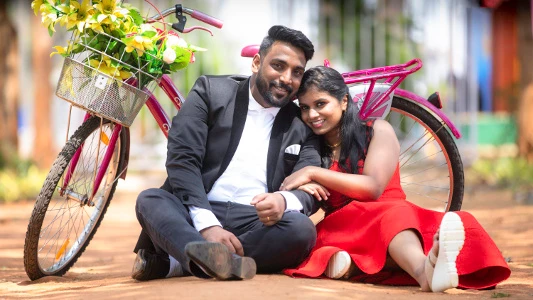Chasing success with diabetes – Balancing my career and my health

I still remember the day I walked into my first corporate job in Kolkata. Fresh out of university, I was full of ambition, adrenaline, and quiet fear. I wanted to prove myself and climb the ladder faster than anyone else.
But I also walked in carrying something invisible yet heavy – My type 2 diabetes diagnosis.
At 26, I felt too young for the disease. It had crept into my life silently, wrapped in family history and years of stress eating my way through exam seasons.
“You’re diabetic,” the doctor had told me bluntly. And I’d left his clinic with a prescription and a pamphlet on diet and exercise, feeling overwhelmed but determined.
I told myself it wouldn’t define me. After all, I was stepping into adulthood, boardrooms and brainstorms, and I wasn’t about to let my pancreas set the rules.
The corporate culture clash
It didn’t take long for me to realise that managing diabetes and a demanding job weren’t exactly compatible.
My workday started at 9am but rarely ended before 8pm. Meetings stretched past lunch, and deadlines gobbled up my evenings. The office pantry was stocked with the usual suspects (sugary chai, biscuits, and samosas). And while in the beginning I packed lunch religiously (brown rice, sabzi, and salad), I soon found myself skipping meals or reaching for a vada pav just to survive another Zoom call.
“Eat later, finish this deck first,” my boss would say. Or, “Come on, it’s just one celebration – have a piece of cake!”
They weren’t being cruel; they just didn’t understand. And honestly, I didn’t want to be the person who always said no and brought attention to their ‘condition’. I wanted to fit in.
But my body wasn’t cooperating. There were days I felt dizzy mid-meeting, and my hands would tremble typing out reports. Sometimes, I’d have to quietly excuse myself so I could check my blood sugar in the washroom, ashamed and anxious.
I wasn’t just battling deadlines – I was battling guilt.
Every skipped lunch, every sugar spike, every “It’s okay, I’ll do better tomorrow” weighed heavier on me.
The mask cracks
It came to a head one evening when I stayed late to finish a project. I hadn’t eaten since noon, and around 9pm I stood up to get some water and felt the room spin. The next thing I knew, a colleague was helping me sit down, asking if I was okay.
“I think it’s just low blood pressure,” I lied.
But I knew better. I checked my sugar, and it was dangerously low. I sat there chewing glucose tablets, feeling tears well up – Not from the low, but from frustration.
It was then that it hit me; I was trying to run a race with a broken shoe, pretending nothing was wrong. But diabetes doesn’t care about ambition or promotions. It demands attention. And I wasn’t giving mine enough.
Small changes, big fights
The next day, I made a decision. I wasn’t going to quit my job, but I was going to quit neglecting myself.
I started by setting alarms for meals. I blocked time in my calendar for lunch, even if it meant eating at my desk. I spoke to HR about getting healthier snack options in the pantry (and surprisingly, they agreed). And I kept nuts and roasted chana in my drawer for emergencies.
But the hardest change wasn’t logistics – It was mindset.
Saying ‘no’ to after-hours work felt rebellious. Declining sugary office treats felt rude. And taking a short walk instead of chatting at the coffee machine felt antisocial.
I worried colleagues would think I was difficult. And some did. But others started noticing, even respecting, the boundaries I set. “You’re really disciplined,” one teammate said admiringly.
Little did they know how fragile that discipline felt some days.
Facing burnout
While I’d made some improvements, I wasn’t immune to burnout.
There were still weeks when stress spiked my sugars higher than any sweet could. Days when I came home too tired to cook, settling for bread and butter instead of a balanced meal. And nights I lay awake, wondering if I’d ever feel normal again.
But I also started recognising the signs.
When my mood swung wildly, when my focus scattered, when my body ached… I paused.
I stopped seeing those moments as failures and started seeing them as signals – Signals that I needed rest, food, water and care.
I learned to delegate at work and to ask for help without guilt. And I also recognised that self-care wasn’t selfish. It was survival.
Finding a different definition of success
It’s been 5 years since I joined the workforce. I’ve been promoted twice. I’ve also had 2 medication changes, 1 scary hospitalisation, and countless frustrating days.
But here’s what I’ve learned – Climbing the ladder isn’t worth it if you’re too sick to enjoy the view.
Success for me now includes being able to go for an evening walk with my father, cook a healthy dinner with my mother, and wake up without numbness in my feet.
Diabetes taught me to slow down. Not to give up, but to pace myself. It taught me that ambition is powerful, but so is resilience.
And as for the balancing act between career and health, I’ve finally stopped seeing them as rivals. They’re both part of me, both deserving of space. And every day I choose to honour both, I feel a little closer to the version of myself that I’ve been chasing all along.
Looking for more stories like this?
Lisa is a type 2 diabetic. When she married, she quickly realised she’d have to work out how to manage her diabetes with her husband, and how he could help.
When Nirvaanika was first diagnosed with type 2 diabetes, she was only worried about her blood sugar. But then she started planning a family.
Lisa is a type 2 diabetic. When she married, she quickly realised she’d have to work out how to manage her diabetes with her husband, and how he could help.








